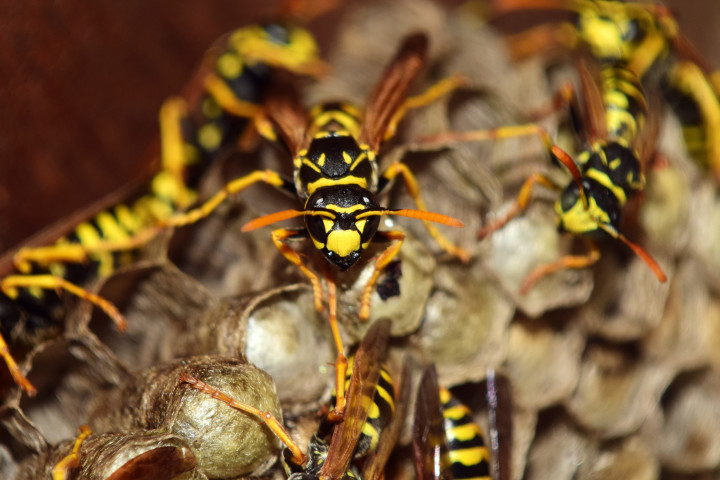During the peak of wasp season in the Sacramento area, it is important to take extra precautions to avoid being stung by these bothersome pests. While most people experience mild pain or discomfort from a bee or wasp sting, there have been rare cases that highlight more serious complications, such as strokes.In one recent report, a 44-year-old man from Ohio was stung by a wasp while working at a construction site. Initially, he developed a rash and hives, but about an hour later, he exhibited classic signs of a stroke, including difficulty speaking, paralysis on one side of his body, and a drooping facial expression. He was promptly taken to the hospital for treatment.
Dr. Michael DeGeorgia, who treated the man, stated that this was the first case he had seen where a stroke was caused by a wasp sting. However, there have been other reports of stroke occurrences after bee or wasp stings. Most of these cases involved multiple stings, according to research published in the Journal of Emergency Medicine.
The report suggests several ways in which a wasp sting could lead to a stroke. Firstly, compounds found in wasp venom can cause blood vessels to constrict, potentially leading to a stroke. Additionally, some of these venom compounds promote blood clotting, which can also trigger a stroke. Wasp stings may also contribute to atrial fibrillation, an irregular heart rhythm that increases the risk of stroke by causing blood pooling in the heart and subsequent clot formation.
Finally, severe allergic reactions triggered by a wasp sting can cause low blood pressure, leading to inadequate blood flow to the brain and increasing the risk of stroke.
In the case of the Ohio man, brain scans revealed constricted blood vessels, indicating that the blood vessel-constricting compounds in the wasp venom likely caused his stroke. It is possible that he also had an irregular heart rhythm that contributed to clot formation, although this was not detected during his treatment.
While it remains unclear why a single wasp sting caused the man’s stroke, it is generally believed that a significant amount of venom is typically required for such an event. The man may have had an unusual sensitivity to the venom. Although there are no specific risk factors that make a stroke more likely after a wasp sting, individuals with pre-existing risk factors for stroke, such as high blood pressure or high cholesterol, may be more susceptible.
To minimize the risk of wasp stings at your home, we recommend contacting Fast Action Pest Control for a complimentary inspection and prompt results. Their expertise can help reduce the chances of encountering these pests and the potential complications that may arise from their stings.


